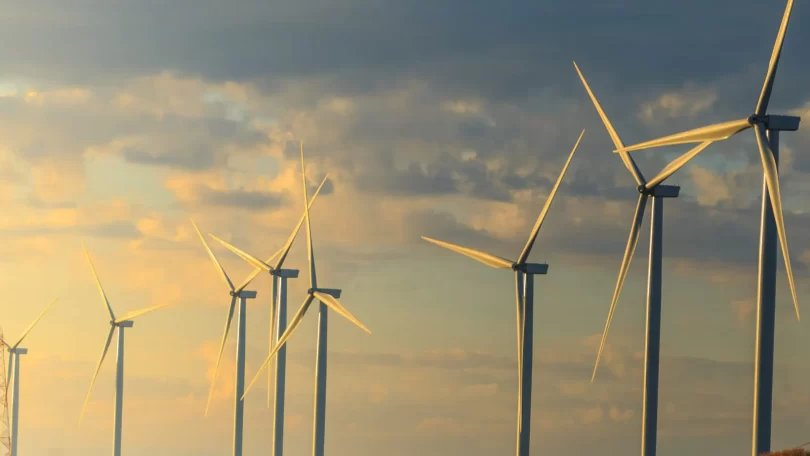[ad_1]
A bill has been introduced in the US Congress by two American lawmakers, Scott Peters and Ami Bera, to provide resources to help India switch to clean energy.
The Prioritizing Clean Energy and Climate Cooperation with India Act proposes that the US-India Climate and Clean Energy Agenda 2030 Partnership be established as the primary forum for clean energy technology cooperation.
Democratic party member Bera is the Chair of the House Foreign Affairs Committee’s Asia, Pacific, Central Asia, and Nonproliferation Subcommittee.
Here it should be noted that the law aims to foster US-India collaboration in clean energy research and development, give technical assistance for grid modernization and energy efficiency in India, and incentivize the development of new renewable energy sources in India.
It calls on the US Agency for International Development to work with the Indian government to integrate climate change risk reduction and resiliency initiatives in India, among other things.
Peter, who is also a member of the Democratic Party, said that there is little prospect of combating climate change without international cooperation. He noted that the current issues in India underscore how focused investments in climate change research and clean technologies can strengthen ties with allies like India, promote a worldwide transition to sustainable energy, and cement the US as a leader in the clean energy revolution.
Meanwhile, Bera said: “As the world’s oldest and largest democracies, the US and India have the opportunity to strengthen our clean energy partnership and jointly combat the shared threat of climate change.”
According to him, the US-India Climate and Clean Energy Partnership will be established as a result of this law, which will boost bilateral cooperation on clean energy technologies and strengthen present efforts to improve Indian citizens’ access to the electrical grid.
“I am proud to work with my good friend Representative Peters to further strengthen our relationship with India,” added Bera.
In the energy sector, the US and India have a long and fruitful strategic collaboration. Year after year, the technical, economic, and bilateral energy cooperation between the two countries grows stronger.
It is noteworthy that the Partnership to Advance Clean Energy (PACE) was founded in November 2009 by the US and India with the goal of accelerating inclusive, low-carbon growth by supporting clean energy research and deployment.
Later in September 2014, Prime Minister Narendra Modi and US President Barack Obama made a commitment to deepen and expand PACE through a range of priority initiatives during their first bilateral summit.
Then in January 2015, the two leaders met again and unveiled numerous additional PACE initiatives.
However, according to the website of the United States Agency for International Development, Since 2016, USAID-India has improved energy access for 5 million people, assisted in the deployment of 6,000 megawatts of renewable energy, enough to power 3.9 million homes, leveraged more than $2 billion in clean energy investments and assisted India in reducing greenhouse gas emissions by 13 million tonnes, the equivalent of removing over 2.5 million cars from the road for a year.
It was also stated that USAID is collaborating with the Indian government to assist it to meet its 2030 objective of switching to non-fossil fuels in the power sector.
In terms of the newly introduced bill to support India’s switch to clean energy, News18 spoke to an industry insider to understand its possible impact.
Manish Dabkara, who is the CEO and CMD of EKI Energy Services Ltd, believes that the Prioritizing Clean Energy and Climate Cooperation with India Act, proposed in the US Congress is a “good initiative”.
He said: “International collaboration is important to fight climate change and developed nations like the US should demonstrate high ambitions to support the climate actions of developing nations like India’s NDCs through technology transfer and climate finance.”
“The developing nations currently face various challenges in tackling climate change and need international cooperation to meet the targets. Some of these challenges include lack of technology for improving grid and energy efficiency, research and innovation for clean energy technologies, and lack of incentives for the creation of new renewable energy sources,” he added.
Dabkara, who heads a company that has been working towards rehabilitating planet Earth to a future of net-zero carbon emissions, stated that the partnership will “fast-track” the climate change mitigation efforts and foster the global transition to sustainable energy.
According to him, “While the move by US Congressmen is appreciated, it is also important for developed nations like the US and EU to relax strict regulations under the Carbon Border Adjustment Mechanism (CBAM).”
“It is time for nations across the globe to develop strategic partnerships and jointly combat the shared threat of climate change under the Paris Agreement,” he noted.
Read all the Latest News , Breaking News , watch Top Videos and Live TV here.
[ad_2]
Source link








